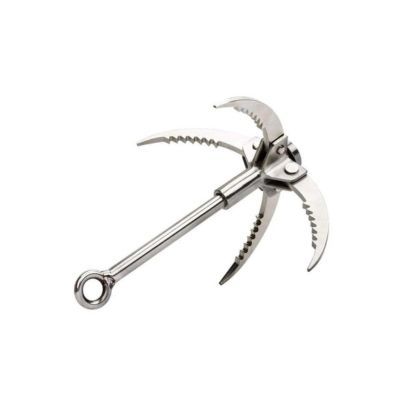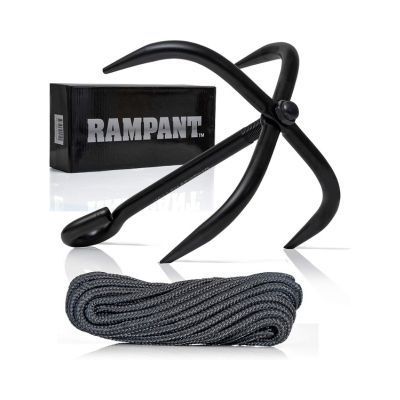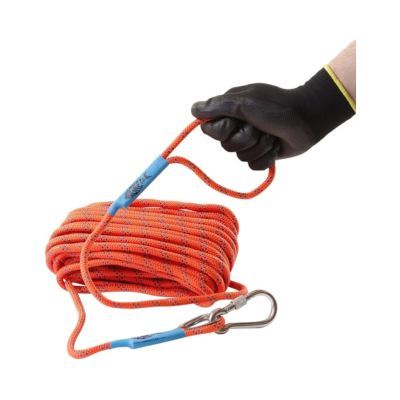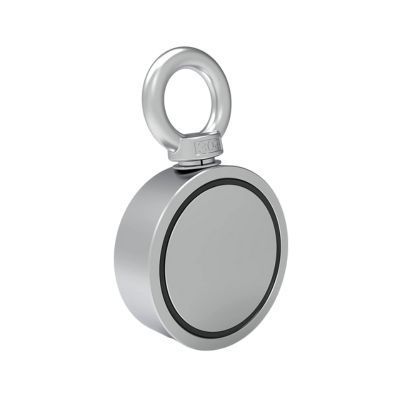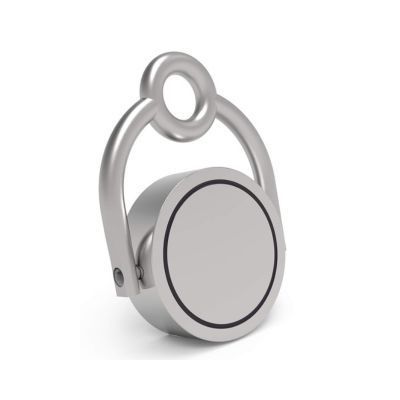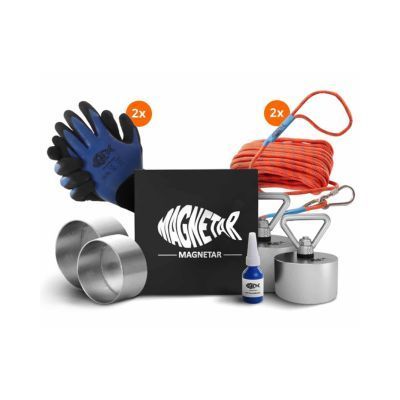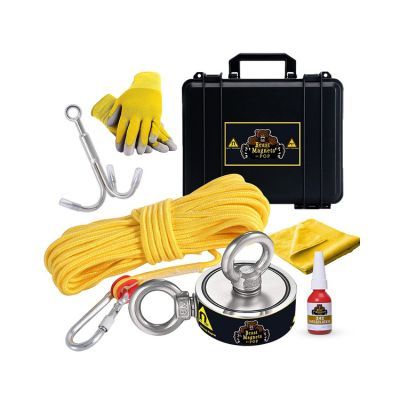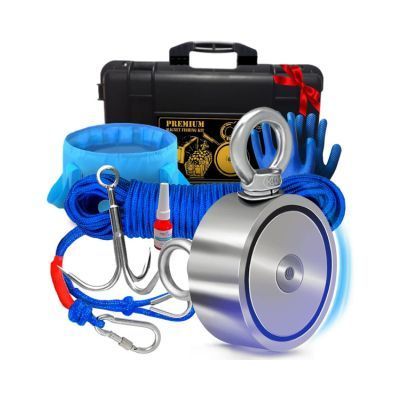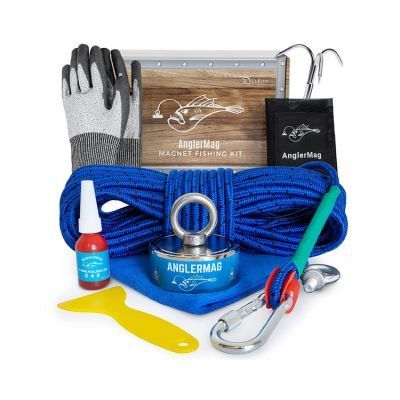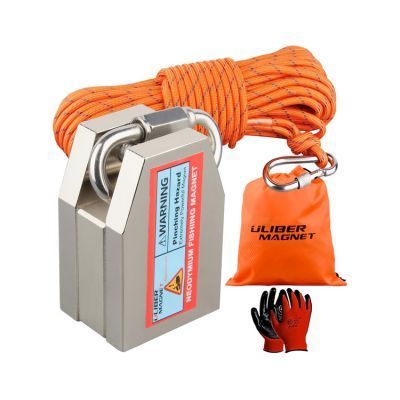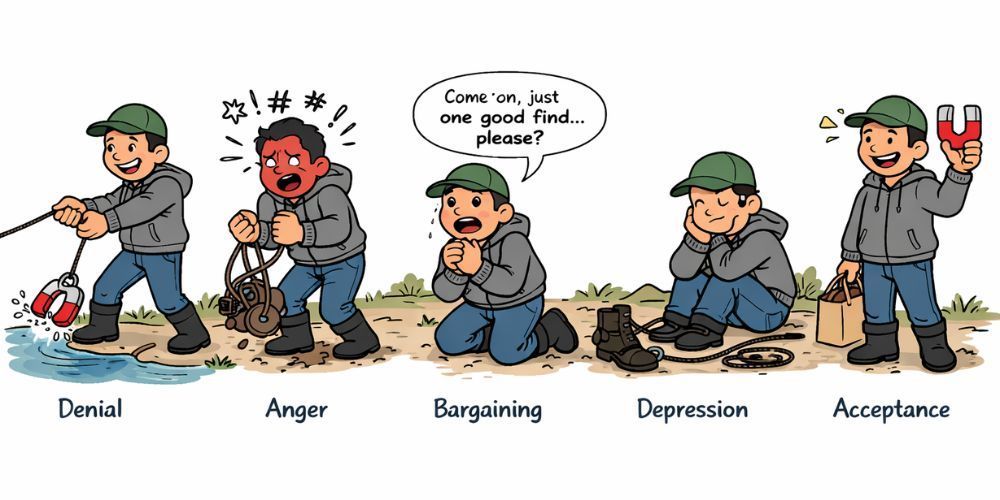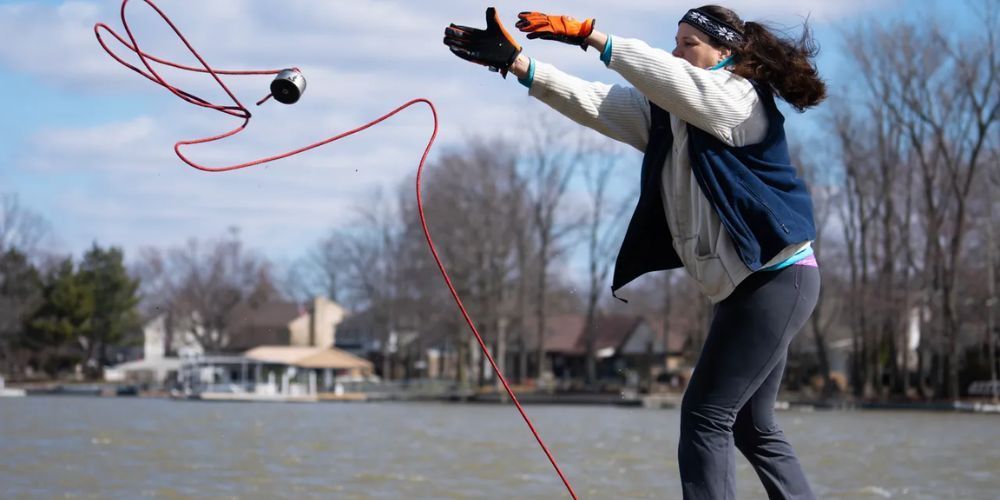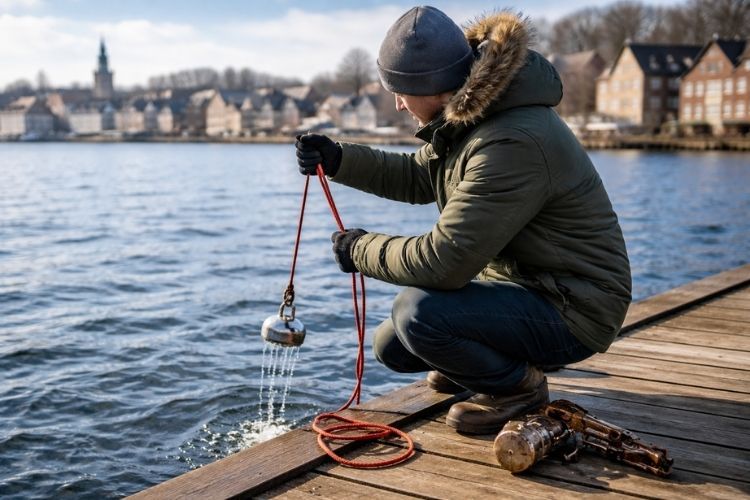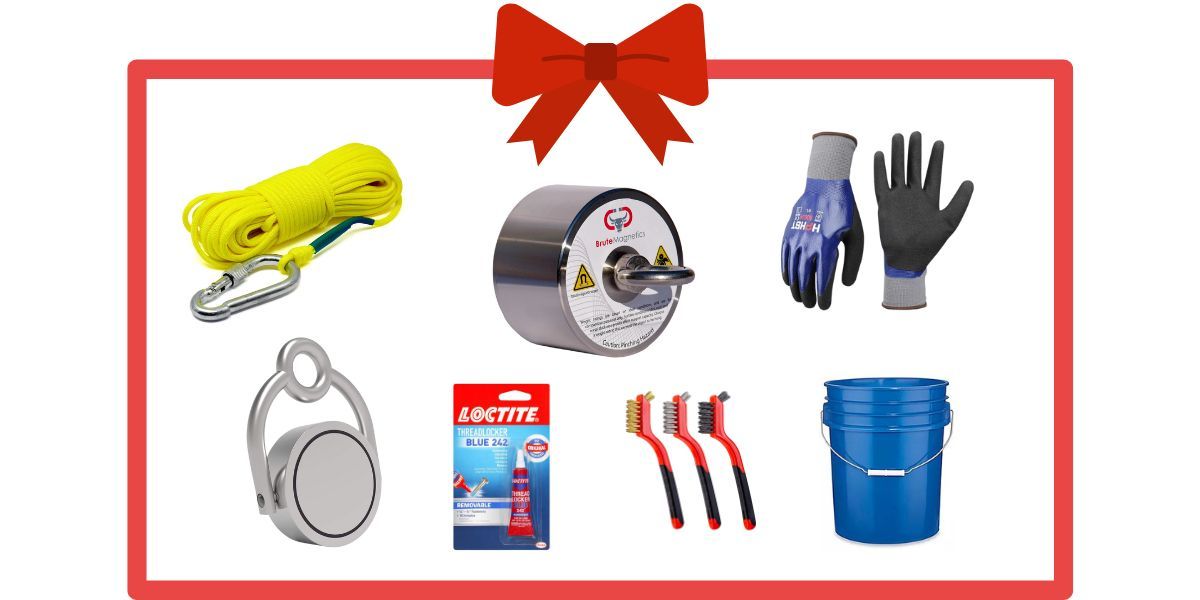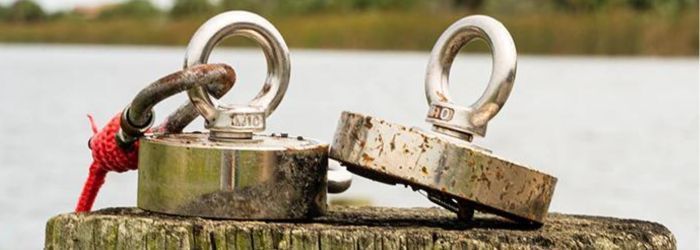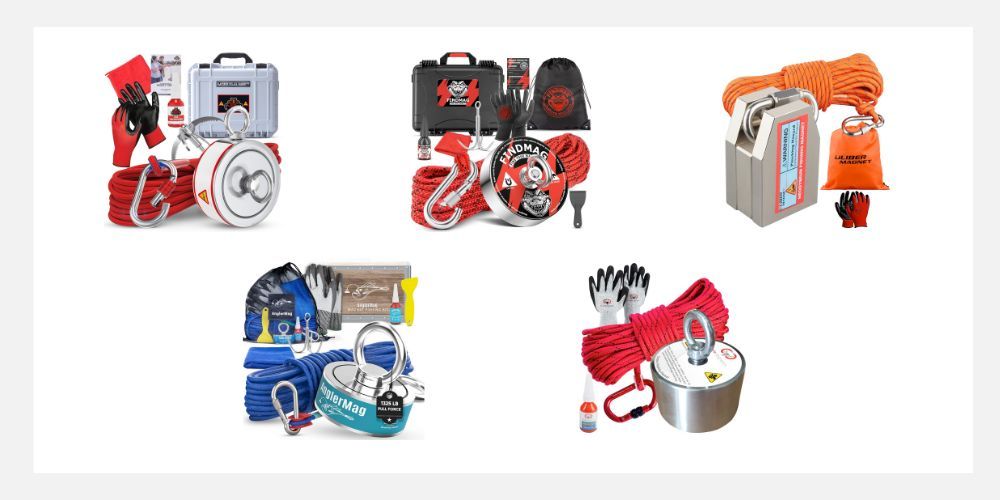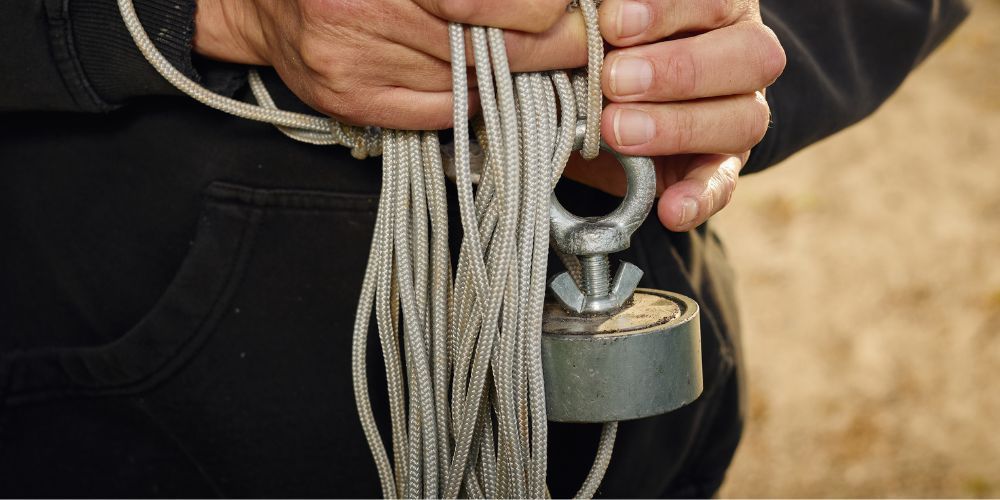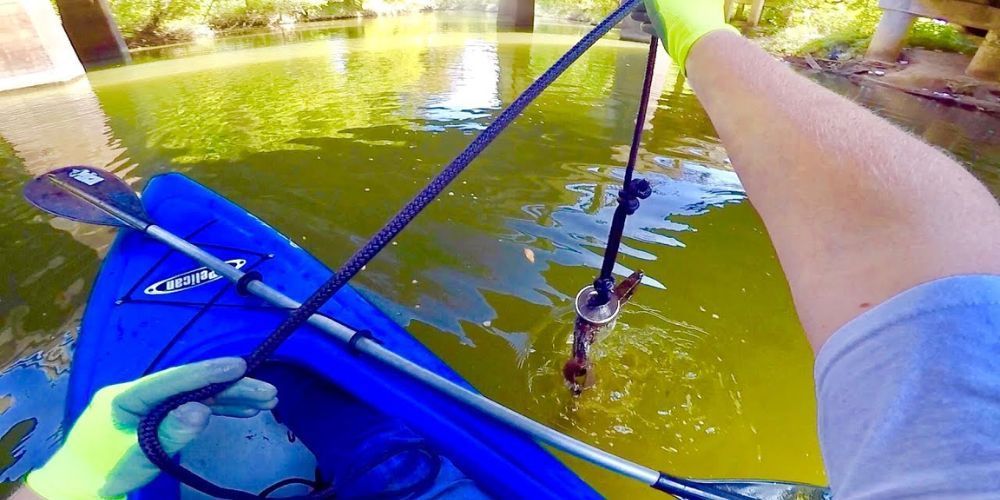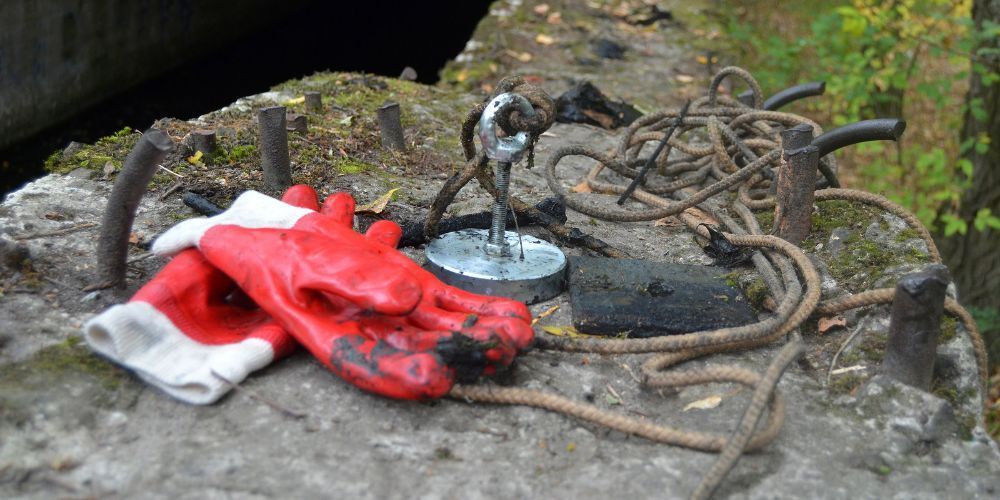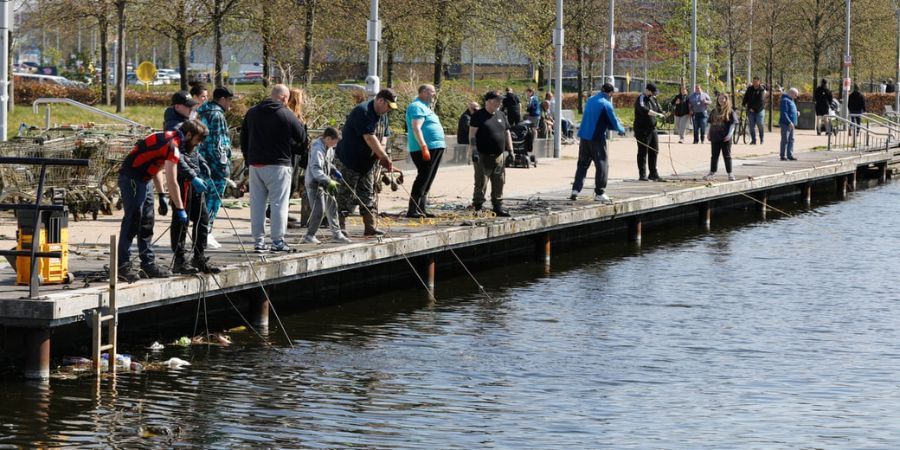Do You Need a License to Magnet Fish? State Requirements & Permit Guide
Planning your first magnet fishing adventure but confused about license and permit requirements? You're not alone. The question "do you need a license to magnet fish?" is one of the most common concerns for new and experienced magnet fishers alike.
The short answer is: most states don't require a special license for magnet fishing, but permit requirements vary significantly by location. Some areas require permits for specific waterways, parks, or archaeological sites, while others have no requirements at all.
This comprehensive guide will help you understand exactly what permits or licenses you need for magnet fishing in your area, how to get them, and what happens if you fish without proper authorization.
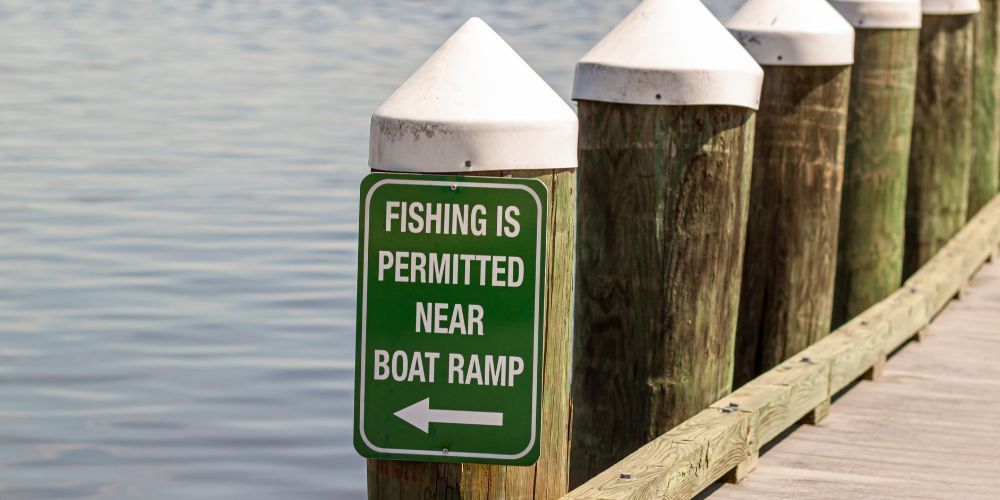
Quick Answer: License Requirements by State
| License/Permit Required | Sometimes Required | Generally Not Required |
|---|---|---|
| New York (certain areas) | California (state parks) | Most other states |
| South Carolina (banned) | Florida (archaeological sites) | Always check local laws |
| Texas (some public waters) | Municipal restrictions may apply | |
| Michigan (state parks) |
Bottom Line: Even in "not required" states, always check local ordinances and specific location rules before magnet fishing.
License vs. Permit: Understanding the Difference
Before diving into requirements, it's important to understand the distinction between licenses and permits in magnet fishing:
Magnet Fishing License
A magnet fishing license is a formal state-issued document, similar to a hunting or fishing license, that authorizes general magnet fishing activity within a state. Key characteristics:
- Issued by state agencies (fish & wildlife, environmental departments)
- Annual or multi-year validity with renewal requirements
- Covers broad geographical areas within the state
- Requires fees typically ranging from $10-50 annually
- May include testing or educational requirements
Currently, very few states issue specific magnet fishing licenses. Most classify magnet fishing under existing regulations or don't regulate it at all.
Magnet Fishing Permit
A magnet fishing permit is location-specific authorization that allows magnet fishing in particular areas. Characteristics include:
- Location-specific (individual parks, waterways, bridges)
- Shorter duration (daily, weekly, or seasonal)
- Issued by various authorities (park services, municipalities, property managers)
- Lower cost or free (typically $5-25)
- Easier application process
Other Requirements
Beyond licenses and permits, you may need:
- Property owner permission for private waters
- Special use permits for commercial filming or large groups
- Archaeological permits for historically sensitive areas
- Insurance documentation for some commercial activities
States with License or Permit Requirements
States with License or Permit Requirements
- New York: Mixed Requirements
List Item 1
New York has the most complex magnet fishing regulations in the country.
State Parks: Many New York state parks prohibit magnet fishing entirely. Parks that do allow it often require special permits.
Public Waterways: Some waterways require permits, particularly those with historical significance or archaeological value.
Application Process:
- Contact: New York State Parks or local park office
- Cost: $25-50 depending on location and duration
- Processing Time: 2-4 weeks
- Requirements: Government ID, intended fishing locations, equipment details
Restricted Areas:
- Most state parks (check individual park regulations)
- Archaeological sites along the Hudson River
- Areas near historical landmarks
- Designated environmental protection zones
- California: State Park Permits
List Item 2
California allows magnet fishing in most public waterways but has specific restrictions:
General Rule: Magnet fishing is allowed in navigable public waterways, but it's unlawful to remove artifacts of any age from state waters.
State Parks: Most California state parks prohibit magnet fishing due to archaeological protection regulations. Some parks may issue special permits for research or educational purposes.
Permit Requirements:
- Contact: California State Parks Department
- Cost: $15-35 for day-use permits
- Processing Time: 1-3 weeks
- Restrictions: Artifact removal prohibited, designated areas only
- Florida: Archaeological Site Permits
List Item 3
Florida requires permits for magnet fishing in areas with archaeological significance:
General Waters: No permit required for most recreational magnet fishing
Archaeological Sites: Special permits required for fishing near:
- Shipwreck sites
- Historical settlements
- Native American heritage areas
- Designated underwater archaeological preserves
Permit Process:
- Contact: Florida Department of Environmental Protection (FDEP)
- Cost: $20-75 depending on site and duration
- Processing Time: 3-6 weeks
- Requirements: Background check for sensitive sites
- Texas: Public Water Permits
List Item 4
Texas requires permits for magnet fishing in certain public waters:
General Rule: Most magnet fishing is unrestricted on public waters
Permit Required For:
- Some state parks
- Corps of Engineers lakes
- Designated historical areas
- Commercial magnet fishing activities
Application Details:
- Contact: Texas Parks and Wildlife Department
- Cost: $10-30 for recreational permits
- Processing Time: 1-2 weeks
- Michigan: State Park Permits
Michigan requires permits for magnet fishing in state parks:
Public Waters: Generally allowed without permits
State Parks: Day-use or annual permits required
- Cost: $10-25
- Available: At park offices or online
- Restrictions: Designated areas only
How to Get a Magnet Fishing Permit
Getting a magnet fishing permit involves several steps, but the process is generally straightforward:
Step 1: Research Your Location
Before applying for any permits, determine exactly where you plan to magnet fish:
Identify Water Body Type
- Public river or lake
- State or national park
- Municipal waterway
- Private property
Check Multiple Authorities
- State fish and wildlife departments
- State park services
- Local police departments
- Municipal offices
- Property managers
Step 2: Contact Relevant Authorities
For State Waters
- State fish and wildlife department
- State environmental agency
- State parks department
For Local Waters
- City clerk's office
- Local police department
- Parks and recreation department
For Federal Waters
- Army Corps of Engineers
- National Park Service
- Bureau of Land Management
Step 3: Gather Required Documents
Common Application Requirements
- Government-issued photo ID
- Proof of residency (for resident rates)
- Insurance documentation (for commercial permits)
- Equipment specifications (magnet strength, rope length)
- Intended fishing dates and locations
Additional Documents May Include
- Emergency contact information
- Vehicle registration (for park access)
- Group member list (for group permits)
- Educational credentials (for research permits)
Step 4: Submit Application and Fees
Application Methods
- Online applications (most convenient)
- Mail-in applications with check or money order
- In-person applications at office locations
- Phone applications for simple day-use permits
Payment Options
- Credit/debit cards (online and phone)
- Checks or money orders (mail)
- Cash (in-person only)
Step 5: Wait for Approval
Processing Times Vary
- Day-use permits: Often immediate or same-day
- Annual permits: 1-2 weeks typically
- Special use permits: 2-6 weeks
- Archaeological permits: 4-8 weeks (background checks required)
During Processing
- Save confirmation numbers
- Track application status if available online
- Contact office if processing exceeds estimated time
- Don't fish until approved (avoid penalties)
-
Brute Magnetics Grappling Hook
Read Review -
Rampant Grappling Hook with Rope
Read Review -
Brute Magnetics Cut Resistant Gloves
Read Review -
Waterproof Magnet Fishing Gloves
Read Review -
Magnetar Magnet Fishing Rope
Read Review
Permit Costs and Fees
Understanding permit costs helps you budget for your magnet fishing adventures:
Typical Fee Structure
Day-Use Permits
- State parks: $5-15 per day
- Municipal areas: $3-10 per day
- Special locations: $10-25 per day
Annual Permits
- State licenses: $15-50 annually
- Park passes: $25-75 annually
- Special use permits: $50-150 annually
Commercial Permits
- Filming permits: $100-500 per day
- Group tour permits: $200-1000 annually
- Research permits: $100-300 per project
Fee Discounts and Waivers
Many states offer reduced fees for:
Senior Citizens (65+)
- 50% discount on most permits
- Free day-use permits in some states
- Reduced annual fees
Military Personnel
- Active duty discounts (often 25-50% off)
- Veteran discounts in some states
- Free permits for disabled veterans
Students
- Educational discounts for school projects
- Research permits at reduced cost
- Group rates for clubs and organizations
Disabled Individuals
- Reduced fees in most states
- Accessible location priorities
- Extended permit durations
Payment and Refund Policies
Payment Methods
- Credit cards accepted for most online applications
- Checks or money orders for mail applications
- Cash for in-person permits only
Refund Policies
- Weather cancellations: Often refundable
- Medical emergencies: Case-by-case basis
- Permit errors: Full refund typically available
- Change of plans: Usually non-refundable
Wildebeest Fishing Magnet
Read ReviewMHDMAG Double Sided Fishing Magnet
Read ReviewAnt Mag Swivel Fishing Magnet
Read ReviewSpecial Permit Categories
Archaeological Permits
Some areas require specialized permits due to historical significance.
When Required
- Shipwreck sites and underwater archaeological areas
- Historical settlements along waterways
- Civil War battlefields with water access
- Native American heritage sites
Application Process
- Background check often required
- Educational qualifications may be needed
- Research proposal for academic permits
- Artifact handling protocols must be followed
Restrictions
- Artifact removal strictly regulated
- Reporting requirements for all finds
- Professional supervision may be required
- Limited fishing areas within sites
Park-Specific Permits
National Parks
- Generally prohibited in most national parks
- Rare exceptions for designated areas
- Educational programs sometimes available
- Research permits for scientific studies
State Parks
- Varies significantly by state and park
- Day-use permits most common
- Seasonal restrictions during wildlife breeding
- Designated areas only
Local Parks
- Municipal regulations apply
- Often less restrictive than state parks
- May require simple registration
- Usually free or low-cost
Commercial and Group Permits
YouTube/Social Media
- Filming permits required for monetized content
- Higher fees for commercial activities
- Insurance requirements often mandatory
- Location restrictions may apply
Organized Groups
- Club permits for regular group activities
- Educational permits for school groups
- Tour operator licenses for paid experiences
- Event permits for competitions or gatherings
Consequences of Fishing Without Permits
Understanding penalties helps you avoid costly mistakes.
Common Penalties
Fines
- Minor violations: $50-200 (fishing without day-use permit)
- Moderate violations: $200-1000 (fishing in restricted areas)
- Serious violations: $1000-5000+ (archaeological site violations)
Equipment Consequences
- Temporary confiscation during investigation
- Permanent confiscation for repeat offenses
- Evidence seizure for legal proceedings
Access Restrictions
- Banned access to specific locations
- Suspended privileges for park systems
- Probationary periods for permit eligibility
Criminal Charges
Misdemeanor Charges
- Trespassing on private property
- Vandalism if property is damaged
- Archaeological violations in sensitive areas
Felony Charges (Rare)
- Theft of cultural artifacts
- Damage to archaeological sites
- Repeated willful violations
Enforcement Agencies
Who Can Issue Citations
- Park rangers and park police
- Game wardens and conservation officers
- Local police and sheriff's deputies
- Environmental enforcement officers
What They Look For
- Valid permits displayed or carried
- Compliance with area restrictions
- Proper equipment use
- Responsible find handling
Alternative Options When Permits Aren't Available
Private Property Access
When public permits aren't available, private property can be an excellent alternative.
Getting Permission
- Contact property owners directly
- Explain magnet fishing and your intentions
- Offer to share interesting finds
- Provide written agreement for liability protection
Liability Considerations
- Personal insurance may not cover property damage
- Written agreements protect both parties
- Emergency contact information should be exchanged
- Property boundaries must be clearly understood
Best Practices
- Respect property boundaries strictly
- Leave no trace of your visit
- Remove all trash you find
- Provide follow-up about finds if requested
Permitted Group Events
Local Clubs
- Join existing groups with group permits
- Benefit from experienced leadership
- Learn proper techniques and safety
- Access group permit areas
Educational Programs
- Museum programs sometimes include magnet fishing
- University research projects may welcome volunteers
- Environmental cleanup events often allow magnet fishing
- Youth programs provide supervised access
Travel to Permit-Free Areas
Research Options
- Neighboring states with fewer restrictions
- Vacation destinations with magnet fishing opportunities
- State-to-state reciprocity for resident permits
- Seasonal access during off-peak times
-
Magnetar Warrior Package
Read Review -
Beast Magnets 3,200lbs
Read Review -
Logui Projects 1,200lbs
Read Review -
AnglerMag 1,250lbs
Read Review -
ULIBER Swivel Magnet Fishing Kit
Read Review
State-Specific Permit Information
New York Detailed Requirements
Permit Types
- Day-use permits: $15-25 per day
- Annual park permits: $45-75
- Special event permits: $100-300
Application Process
- Contact specific park office where you plan to fish
- Submit online application with required documents
- Pay applicable fees via credit card or check
- Receive permit confirmation via email
- Print permit and carry while fishing
Restricted Areas
- Finger Lakes State Parks (most prohibited)
- Hudson River historical sites
- Adirondack Park waterways (check individual areas)
- Long Island state parks (generally prohibited)
Contact Information
- New York State Parks: 518-474-0456
- Website: parks.ny.gov
- Email: info@parks.ny.gov
California Permit Details
Permit Categories
- Research permits: For scientific studies
- Educational permits: For school groups
- Special event permits: For organized activities
Application Requirements
- Purpose statement explaining fishing goals
- Equipment list with specifications
- Insurance documentation for groups
- Emergency contact information
Processing
- Online applications preferred
- 2-3 week processing for standard permits
- Background check for archaeological areas
- Site inspection may be required
Contact Information
- California State Parks: 916-653-6995
- Website: parks.ca.gov
- Email: info@parks.ca.gov
Florida Archaeological Permits
When Required
- Within 1 mile of known shipwreck sites
- Designated underwater preserves
- Areas with cultural significance
- Research or educational purposes
Application Process
- Complete online application at FDEP website
- Submit site-specific research plan
- Pay $50-200 fee depending on site and duration
- Wait 3-6 weeks for background check and approval
- Receive permit with specific conditions and restrictions
Contact Information
- Florida FDEP: 850-245-2118
- Website: floridadep.gov
- Email: archaeology@dep.state.fl.us
Permit Renewal and Record Keeping
Renewal Process
Annual Permits
- Renewal notices typically sent 30-60 days before expiration
- Online renewal available for most permits
- Updated information may be required
- Fee payment required for continued validity
Record Keeping Requirements
- Keep permit copies in waterproof storage
- Document fishing activities if required
- Report significant finds to appropriate authorities
- Maintain insurance if required by permit
Compliance Monitoring
Permit Conditions
- Display requirements (visible permit cards)
- Area restrictions (designated fishing zones)
- Time limitations (seasonal or daily restrictions)
- Reporting obligations (find documentation)
Violation Tracking
- Warning systems for minor infractions
- Point systems for repeat violations
- Permit suspension for serious offenses
- Permanent revocation for criminal violations
Tips for Successful Permit Applications
Application Best Practices
Preparation
- Research thoroughly before applying
- Contact offices with questions before submitting
- Gather all documents before starting application
- Allow extra time for processing delays
Application Completion
- Read instructions completely before starting
- Provide accurate information (address, contact details)
- Double-check dates and location specifications
- Include all required supporting documents
Common Mistakes to Avoid
- Incomplete applications (missing required fields)
- Wrong permit type for intended activity
- Expired supporting documents (ID, insurance)
- Insufficient fees or incorrect payment methods
- Late applications for time-sensitive permits
Follow-Up Strategies
After Submission
- Save confirmation numbers and receipts
- Track application status if available online
- Contact office if processing exceeds estimates
- Prepare backup locations in case of permit denial
Upon Approval
- Print multiple copies of permits
- Review all conditions and restrictions carefully
- Plan fishing trips within permit validity period
- Share information with fishing partners
Resources and Contacts
Federal Agencies
U.S. Army Corps of Engineers
- Phone: 202-761-5903
- Website: usace.army.mil
- Jurisdiction: Federal reservoirs, navigation channels
National Park Service
- Phone: 202-208-6843
- Website: nps.gov
- Jurisdiction: National parks, monuments, recreation areas
Bureau of Land Management
- Phone: 202-208-3801
- Website: blm.gov
- Jurisdiction: Public lands, some waterways
State Resources by Region
Northeast
- New York Parks: 518-474-0456, parks.ny.gov
- Pennsylvania DCNR: 717-787-2869, dcnr.pa.gov
- Massachusetts DCR: 617-626-1250, mass.gov/dcr
Southeast
- Florida FDEP: 850-245-2118, floridadep.gov
- Georgia State Parks: 770-389-7401, gastateparks.org
- North Carolina Parks: 919-707-9300, ncparks.gov
Midwest
- Michigan DNR: 517-284-9453, michigan.gov/dnr
- Ohio State Parks: 614-265-6561, parks.ohiodnr.gov
- Illinois IDNR: 217-782-6302, dnr.illinois.gov
West
- California State Parks: 916-653-6995, parks.ca.gov
- Colorado Parks: 303-297-1192, cpw.state.co.us
- Washington State Parks: 360-902-8844, parks.state.wa.us
Professional Organizations
Archaeological Organizations
- Society for Historical Archaeology: sha.org
- Register of Professional Archaeologists: rpanet.org
Environmental Groups
- Leave No Trace: lnt.org
- Environmental Protection Agency: epa.gov
Conclusion
While most states don't require special licenses for magnet fishing, permit requirements vary significantly by location and can change frequently. The key to legal magnet fishing is thorough research and communication with local authorities before you fish.
Remember these essential points:
- Always verify current regulations before fishing any new location
- Carry proper permits and identification while magnet fishing
- Respect all posted signs and area restrictions
- Report significant finds to appropriate authorities
- Practice responsible magnet fishing to preserve access for everyone
By following proper permit procedures, you'll enjoy worry-free magnet fishing while supporting conservation efforts and archaeological preservation. When in doubt, contact local authorities - they'd rather help you fish legally than issue citations for violations.
For more information about magnet fishing laws and regulations, visit our Complete State-by-State Legal Guide or check out our Beginner's Guide to Getting Started.
Happy and legal magnet fishing!
Do fishing licenses cover magnet fishing?
No, traditional fishing licenses do not cover magnet fishing. Fishing licenses are specifically for catching fish with hooks, lines, and nets. Magnet fishing is classified differently and falls under separate regulations when any are required.
Can I get a temporary permit for vacation?
Yes, most areas that require permits offer day-use or short-term options. These are perfect for vacationers and typically cost $5-25 per day. Contact the local park office or permit authority for your destination before traveling.
What if I'm visiting from another state?
Out-of-state visitors typically pay higher permit fees but can usually obtain the same permits as residents. Some states offer reciprocity agreements or tourist-friendly permit packages. Always check residency requirements when applying.
Do kids need separate permits?
Children under 16 typically don't need separate permits when accompanied by a permitted adult. However, some areas have specific age restrictions or require supervision ratios. Check with local authorities for age-specific requirements.
Can I share a permit with family members?
Permit sharing policies vary by jurisdiction. Some permits cover family units or vehicle occupants, while others require individual permits for each person magnet fishing. Group permits may be available for families or organized groups at reduced per-person rates.
What happens if weather cancels my permitted fishing trip?
Weather cancellation policies vary by permit issuer. Some offer free rescheduling or refunds for severe weather, while others don't provide refunds for day-use permits. Check the specific terms and conditions when purchasing your permit.
How far in advance should I apply for permits?
Apply as early as possible, especially for popular locations or peak seasons. Day-use permits can often be obtained same-day, but annual permits may take 2-4 weeks. Archaeological or special use permits can take 6-8 weeks due to background checks.
Author: Will Flaiz


